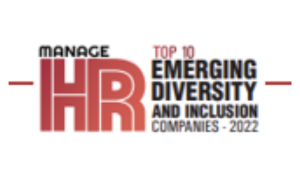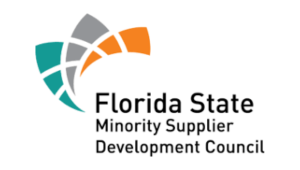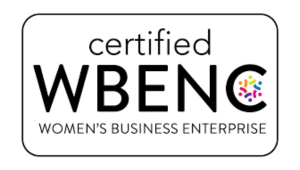It’s highly doubtful that in 2022 you’ll find many HR executives at equal opportunity employers who don’t believe that their organization should also have a diversity, equity, and inclusion (DEI) strategy. However, HR leaders I speak with say that it’s often difficult to get CEOs and COOs to commit to investing time, money, and resources to approve the execution of a DEI strategic plan.
The Chief Financial Officer (CFO) of an organization is an effective ally for CHROs in companies, nonprofits, and healthcare organizations for building the business case for DEI as an essential business strategy. In most cases, the CFO will fill in the details of the strategic plan, see if it is viable, evaluate it, and advise the CEO on potential changes to the plan or alternative plans to achieve the desired result based on the details of the execution.
Ultimately, the CEO is at the center of this process. However, the CFO is a very key participant in the planning process by expanding on the CEO’s general strategies, as well as ensuring that the financial constraints surrounding the strategy are not unrealistic or unduly risky.
So, we thought we’d give you some ideas to help make it easier for HR executives to explain and influence the CFO that remaining solely an equal-opportunity employer, and not having a DEI strategy is obsolete, and a greater risk than they are aware.

CFOs Are Interested in Diversity, Equity, and Inclusion
A growing body of research links organizational investments in DEI capabilities to quantifiable performance benefits.
Not surprisingly, CFOs are interested in these correlations, too. A Deloitte paper – cleverly titled “Seize the DEI” – examines “how CFOs can help implement strategies around diversity, equity and inclusion.” The report presents new survey research showing that 72% of companies have formal DEI programs in place. The paper also cites a Wall Street Journal analysis showing that the S&P 500’s most diverse companies posted an annual stock return (during a five-year stretch) that is more than twice as high as less diverse companies listed on the index for that period.
Deloitte identifies three questions that CFOs should ask about their organization’s DEI investments – HR leaders should be able to answer them:
- Is DEI part of our criteria for choosing business partners? “Given their oversight of treasury and tax, CFOs have great insight into the broader ecosystem,” according to Deloitte, which suggests that “companies that nurture diversity may be more valuable business partners, providing input that helps the business sharpen its competitive advantage.”
- Are we doing all we can to promote DEI within our supplier base? This question is a good match for larger companies with more advanced DEI programs in place. Many of these lessons can also apply to small to medium businesses and can be shared throughout the supplier base. (This question can also be discussed with procurement teams to help them understand the extent to which DEI issues affect their sourcing decisions.)
- Are we providing fully detailed DEI data? The reach of this question will broaden as human capital and DEI reporting matures and shared corporate services should be prepared to address it.
3 Ways CHROs Can Win Over CFOs to Convince CEOs to Invest in Diversity, Equity, & Inclusion
- Evidence-Based Research: Research from McKinsey & Company, Catalyst, and around the world has found that DEI benefits individuals, organizations, teams, and society. I have found the data and findings from this vast body of recent research on the benefits of DEI helpful in educating and influencing CFOs and other finance leaders who are evaluating proposals for DEI strategy development. I recommend that the CHROs and other HR leaders I work with to do the same with their CFOs…share Data, Data, Data…and more Data!
- Employer Brand Reputation vs. Competitor Analysis: At Inclusive Leaders Group, we encourage companies to go beyond the traditional business case by focusing on DEI as “talent management enhancers”, rather than solely as the “bottom line.” Focusing solely on the return on investment (ROI) of DEI becomes more about compliance than about a business strategy that builds on the innovation of a diverse workforce. According to a September 2021 survey from Glassdoor:
- 76 percent of employees and job seekers said a diverse workforce was important when evaluating companies and job offers.
- Nearly half of Black and Hispanic employees and job seekers said they had quit a job after witnessing or experiencing discrimination at work.
- Millennial and Gen Z professionals are avoiding companies without DEI strategies, a diverse workforce, a clear promotion track, and a commitment to confronting systemic racism in their ranks
- 37 percent of employees and job seekers said they wouldn’t apply to a company that had negative satisfaction ratings among people of color.
- Two-thirds of people consider diversity important when deciding where they want to work and 85% of female millennials actively seek employers with a strong record in diversity.
What impression does your company give to job candidates – and EOP statement? Also, consider what your competitors are doing – do they have publicized DEI strategic plans and DEI annual reports? You could be potentially isolating current and potential employees by ignoring DEI and your CFO will be concerned.
- Marketplace and Customer Base Considerations: HR leaders and their marketing counterparts can evaluate your current customer base and the marketplaces you compete in and ask questions:
- What are the demographics of your marketplace? Of your customer base? Do you understand the unique needs of each of these market groups?
- Do a broad range of customers feel equally welcome and respected in your establishment?
- To what degree do diverse customers and potential customers see themselves represented in your workforce and management staff?
- How comfortable and skilled are employees in serving customers they perceive as different from themselves (e.g., language, culture, age, race and ethnicity, and disability)?
- Are employees more suspicious or resentful of a category of customers (e.g., based on age, ethnicity, nationality, language, or religious attire)? If so, how does this affect the customer’s experience?
- What barriers exist that undermine your service delivery (e.g., stereotypes about customers, lack of tools or knowledge)?
- Have you considered the DEI implications in your customer satisfaction measurement process?
- How are customers’ diverse needs being met (e.g., product preferences, language, religious accommodations, access for individuals with disabilities)?
As with your employment brand, also consider what your competitor brands are doing with DEI. You could be potentially isolating current and potential customers by ignoring diversity, equity, and inclusion.
The fourth quarter of 2022 is the time to “kickstart” your effort to get started with DEI and collaborate with your CFO to positively influence your CEO to launch a DEI strategy in 2023.
For more information about how we can help, contact our team, or visit the resource section of our website.
Join my LinkedIn Network!










